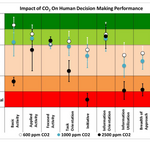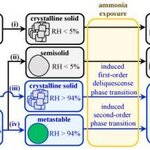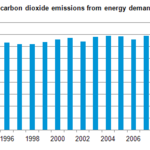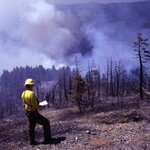
Researchers from Lawrence Berkeley National Laboratory may have discovered why so little that makes sense results from political meetings - moderately high indoor concentrations of carbon dioxide (CO2) can significantly impair people's decision-making performance.
The results would need to be replicated in a larger study but on nine scales of decision-making performance, test subjects showed significant reductions on six of the scales at CO2 levels of 1,000 parts per million (ppm) and large reductions on seven of the scales at 2,500 ppm. The most dramatic declines in performance,…





